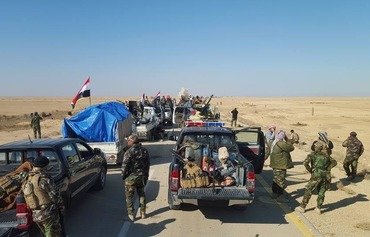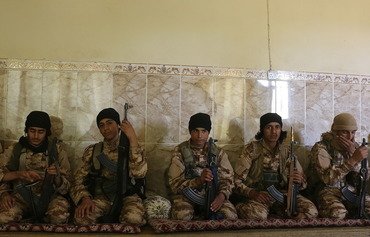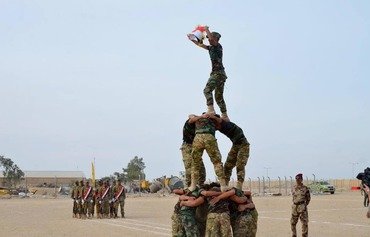Faced with mounting defeats in Iraq and Syria, the "Islamic State of Iraq and Syria" (ISIS) is reportedly planning to regroup on the border region between the two countries, analysts told Diyaruna.
The group has appointed a new "wali" to manage the area it calls Wilayat al-Furat (Euphrates province), they said, which it intends to turn into the new capital of its "caliphate" when it loses its Mosul and al-Raqa strongholds.
There has been no reliable information about the identity of the new "wali".
His predecessor, Abu Mohammed al-Hayali, was killed February 11th in an Iraqi airstrike on the border town of al-Qaim, said security adviser Fadel Abu Ragheef.
Several other senior ISIS leaders were killed in the strike, he told Diyaruna, including Abu Janat al-Rawi, who was the area head of security and intelligence.
It is expected that ISIS would try to replace al-Hayali, Abu Ragheef said.
However, he said, it is significant that this step is part of the group's new strategy in the area of al-Qaim in Iraq and Albu Kamal in Syria.
The neighbouring towns are characterised by the strong tribal ties between residents on both sides of the border, as well as their access to the desert.
The ISIS strategy includes "reforms" to win over local residents through a series of tax cuts and more lenient terms on trade and prices, Abu Ragheef said.
"Other such measures include releasing prisoners who do not threaten the group’s existence," he added.
ISIS has used this ploy in the past to enhance its image in Fallujah and al-Karma, he said, "but did not produce the desired results".
The group is trying it again, however, in order to tighten its grip and its influence in the Upper Euphrates region, he said, noting that an estimated 3,000 ISIS elements are present in al-Qaim.
Media reports indicate the region has become a safe haven for large numbers of fighters escaping Mosul and al-Raqa, though ISIS posts in the area have been repeatedly targeted by the Iraqi army and the international coalition.
A state of confusion
The Iraqi air force primarily relies on intelligence provided by the residents of Upper Euphrates towns to conduct airstrikes, Anbar provincial council member Naeem al-Koud told Diyaruna.
These raids plunge the militants "into a state of confusion and destabilise their presence", he said.
"ISIS sees the Upper Euphrates region as its last sanctuary and is trying to gain a firmer foothold there, but local rejection of the group prevents this from happening," he said.
The army and Iraqi tribes are closing in on Rawa, Anah and al-Qaim -- the last remaining ISIS-controlled towns in Anbar, he said.
On April 20th, a tribal force of 120 fighters attacked an ISIS base near Rawa, killing 20 of the group's fighters, returning to its headquarters in Barwanah, near Haditha, with no significant losses in its ranks, al-Koud said.
Tight military cordon
"The army and tribes have imposed a tight military cordon on ISIS in western Anbar," al-Qaim mayor Farhan Fitaikhan told Diyaruna.
"Military units are currently stationed in advanced locations and constantly combing and patrolling the desert area that extends all the way to al-Qaim," he said.
Fitaikhan said that airstrikes by Iraqi and coalition air forces are ongoing.
"There is no reprieve for ISIS, with daily airstrikes on their energy facilities and militant headquarters and gatherings in al-Qaim and Albu Kamal," he said.
On April 21st, a coalition airstrike destroyed ISIS positions in al-Qaim, while five other raids destroyed oil wells, storage tanks and oil refining equipment in Albu Kamal, he said.
"There is no safe haven for terrorists. This is their end," Fitaikhan said.

![Iraqi tribesmen undergo military training to participate in the liberation of Upper Euphrates areas from the 'Islamic State of Iraq and Syria'. [Photo from the Facebook page of Iraqi MP Mohammed Karbouli]](/cnmi_di/images/2017/05/04/7768-Iraq-Euphrates-tribes-600_384.jpg)






